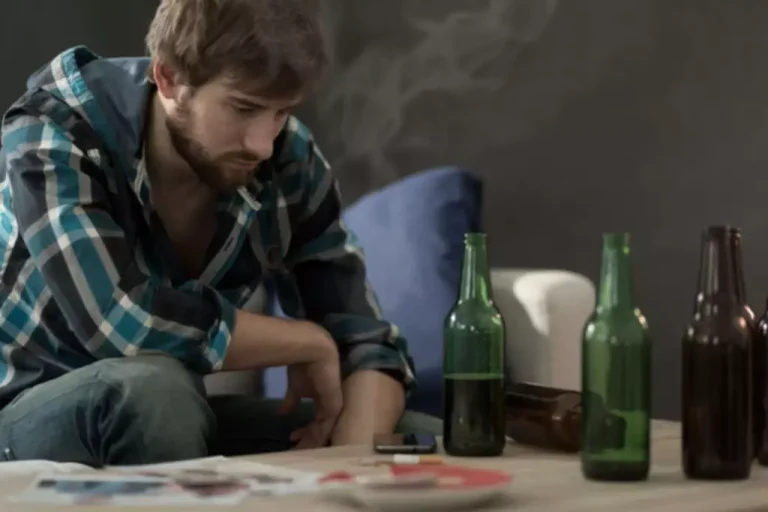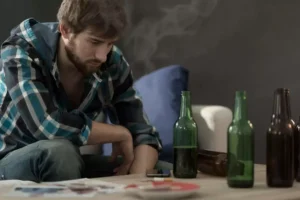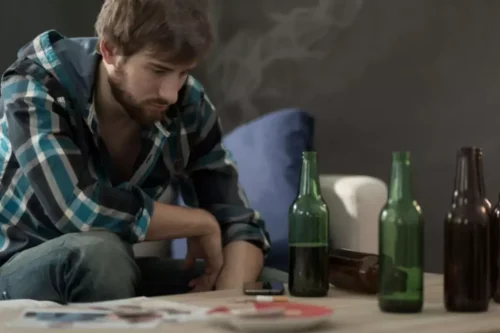Chưa có sản phẩm trong giỏ hàng.
10 Addiction Art Exercises for Lasting Recovery Addictions
In closing, I encourage you to take what you’ve learned and embrace art’s transformative power. Don’t rush; start with one activity that resonates with you and give yourself time to engage with it fully before exploring others. Next, consider your personal comfort level and interest in the arts. This activity not only encourages mindfulness but also allows you to document your journey in a tangible, impactful way. When you create music, whether through playing an instrument or simply using https://ecosoberhouse.com/ your voice, you activate areas of your brain that control motor actions, emotions, and creativity. The therapeutic effects of engaging with music come in various forms.
Art Therapy Activities For Adults
Fingerprint art therapy ideas.Contour your hand (palms with fingers) and create unique patterns inside. For those unable to attend in-person sessions, at-home art therapy exercises can provide ongoing recovery support. Simple activities like keeping an art journal or engaging in daily sketching can help individuals maintain their connection to the therapeutic benefits of creative expression. Online resources and virtual art therapy sessions have made these practices more accessible than ever before. Group mural creation stands out as an innovative approach to building community and support within addiction treatment settings. This collaborative effort not only fosters teamwork and communication skills but also creates a lasting symbol of shared experiences and hope.
Drug & Substance Abuse
The exercise develops cooperation, the ability to work in a team. Crumple a sheet of paper, tear off the edges in the form of an oval or circle. In the middle, create a drawing on any topic. Exercise trains the imagination, helps to overcome stress. Drip a drop of ink on thin paper and roll it up or fold it in half. Expand the sheet and transform the seen image.
Cool Art Project Ideas for Addiction Recovery
This art form is often used to relieve stress and relax the mind, making it a great tool for addiction recovery. It helps the painter express feelings in a safe and supportive way. The primary focus of art therapy for addiction treatment is not the artist’s skill level. No artistic skill is needed to enjoy the benefits.
This version of the bridge drawing technique comes from the Handbook of Art Therapy, from the section on clinical application with adults. In the chapter on using art in counseling, Gladding and Newsome (2007) describe a solution-focused bridge drawing. Sometimes the clients we work with come to therapy because somewhere along the way, they got stuck in a life transition. For some reason, they couldn’t quite navigate the developmental milestone, and they got stuck.
Therapist Directory
Move all 5 rows this way, going further into the future each time. This is suitable for those in a situation of choice in drug addiction treatment making vital decisions. Visualization art therapy ideas.Visualization exercise Sit comfortably with your eyes closed. The assistant pronounces separate phrases, and you should focus on their content.
- It can be any size, but should probably be at least 8.5×11.
- Some people believe that art therapy is the province of children, and that most adults would balk at the suggestion of making art in sessions.
- Exercise trains the imagination, helps to overcome stress.
- Explore powerful delirium tremens treatment strategies and support to conquer addiction’s storm.
- Sharing these creations often sparks conversations, allowing you to connect and find common ground in shared experiences.
- The process of creating it can be as enlightening as sharing the finished piece with someone you trust.
Tips For Starting Art Therapy Activities
- Online resources and virtual art therapy sessions have made these practices more accessible than ever before.
- An art therapist, who has training in both art and psychology, can offer personalized sessions designed around your unique circumstances.
- It’s also important that you are clear with your clients that you are not an art therapist, and you are not providing art therapy.
These art therapy ideas for adults in recovery projects not only provide a creative outlet but also help build social skills and a sense of community. By spending a few minutes to focus on an art project, people will gain a sense of accomplishment and perhaps some insight into their thoughts and feelings. Each of these art projects is a great part of a journey toward recovery and can be completed in a residential treatment center.






